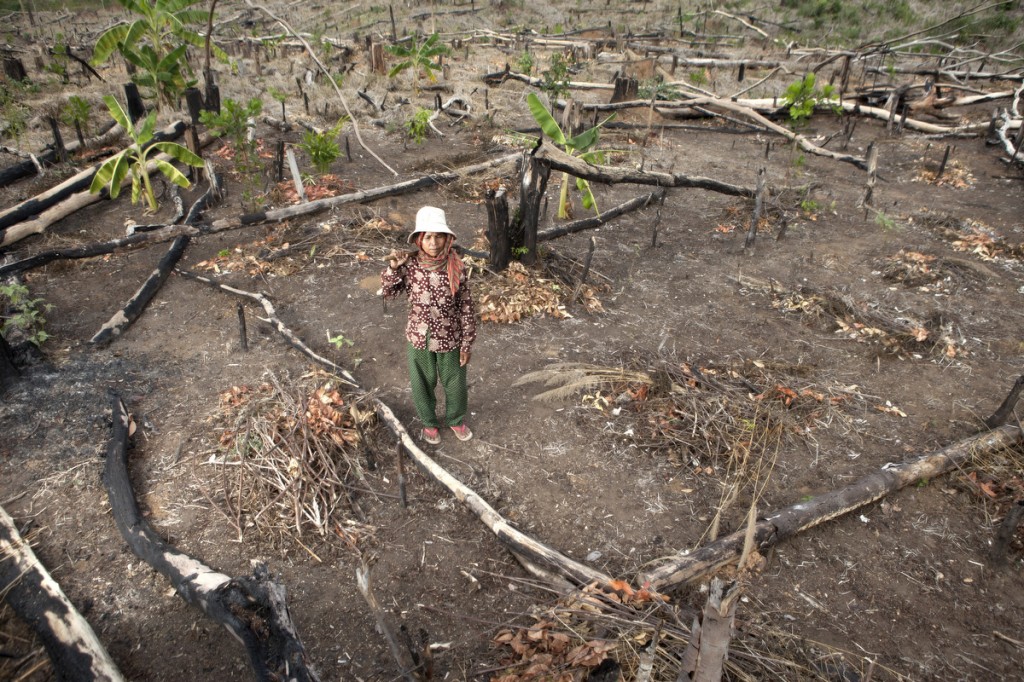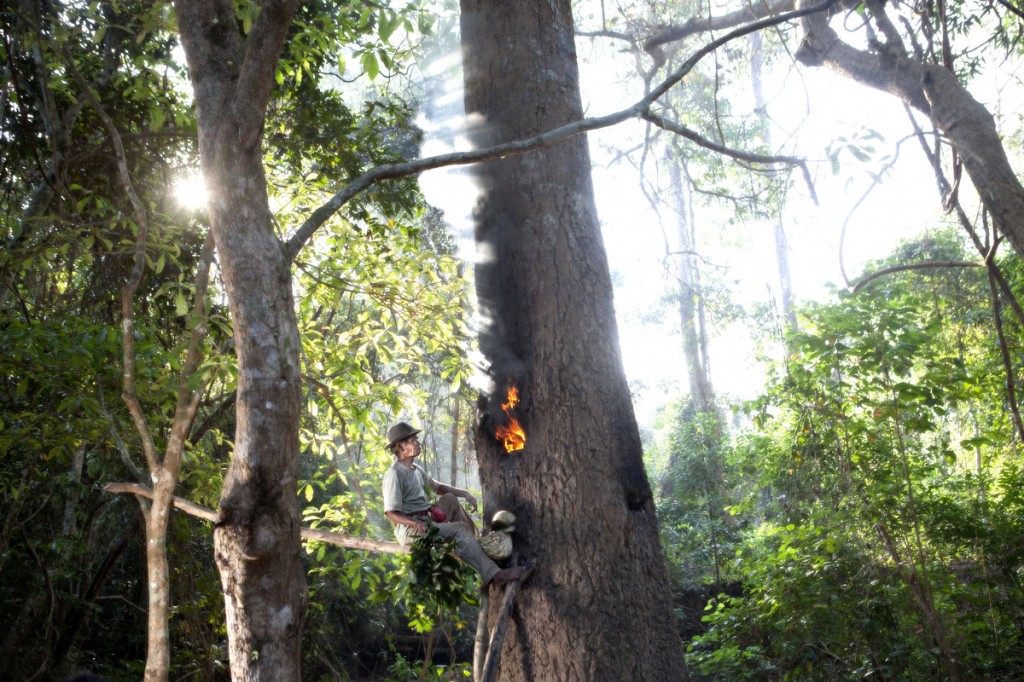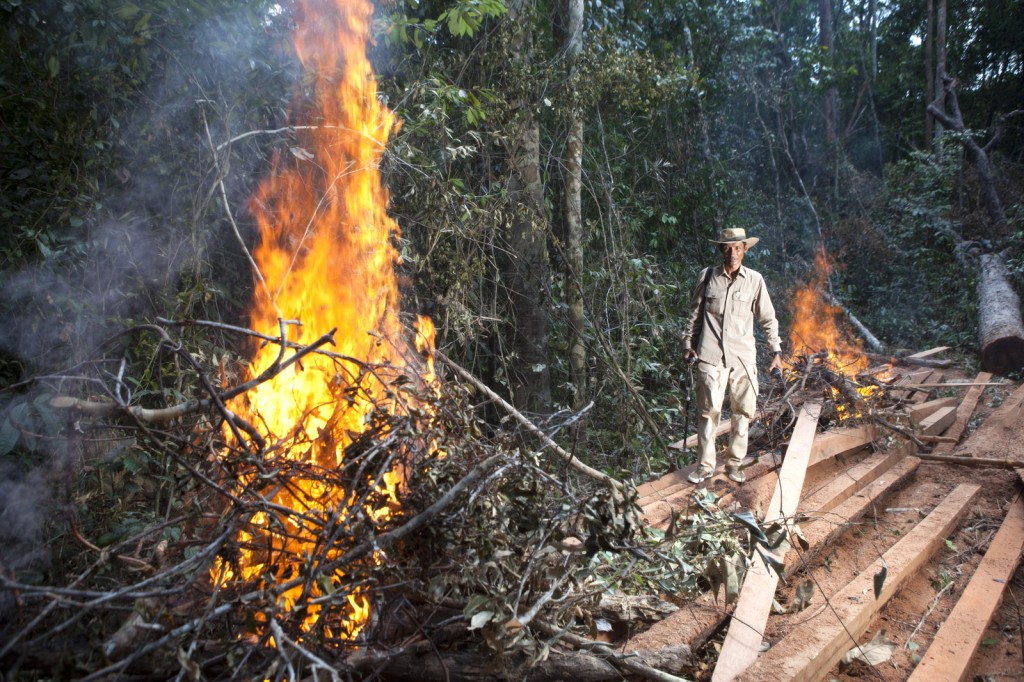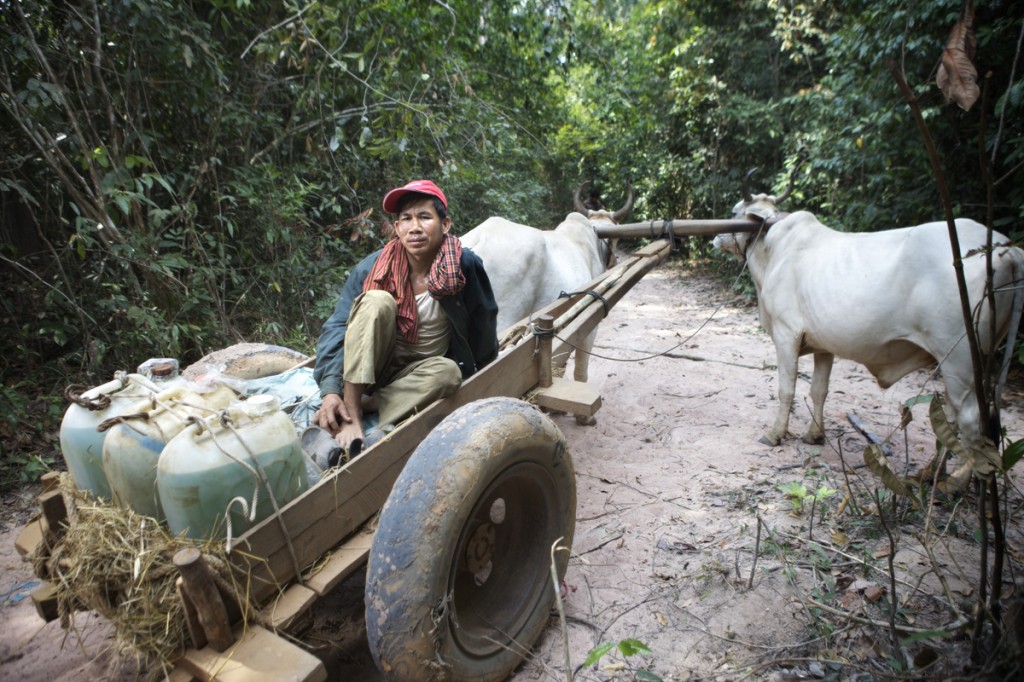Mathieu Young
Posted: 05/20/2012
The Huffington Post
The forests of Cambodia, which the World Bank previously called
its "most developmentally important natural resource," are being
destroyed at an alarming rate, and to the financial benefit of the
ruling elite. Global Witness calls
Cambodia a 'country for sale', and according to a recent USAID report,
without urgent action, Prey Lang, the largest evergreen lowland forest
in Southeast Asia and home to an estimated 200,000 indigenous people,
will be completely destroyed in 2-3 years.
Wanting to understand the effect that deforestation was having on the
environment and indigenous communities, I traveled through Prey Lang
for six days in February on motorbike, photographing both the harmonious
relationship these communities have with the forest, and how that way
of life is quickly slipping away. We stayed in the forest homes of
members of the Prey Lang Network, a grassroots association of villagers
risking their lives to try and slow the destruction of their forest.

Sam Meas, 64, supports his family by collecting resin
from trees via controlled burns. "[Prey Lang] is very important to us...
It is both our food and our farms." Mr. Meas is a Kuy, an indigenous
ethnic minority that has lived in harmony for hundreds of years. They
are quickly being torn from their traditional lifestyles by the
destruction of the forest.
The danger to these activists became all too real on April 26, 2012,
when one of our guides, Chut Wutty, a leading activist for the
protection of Prey Lang, was shot dead by Cambodian Military Police as
he was working with journalists to expose illegal logging activities in
another threatened region of Cambodia. After publishing three
conflicting accounts of his death, the government has closed their
investigation into the shooting, despite continued calls by local
activists and international NGOs, including the UN, for a more
transparent investigation.

Sam Meas, 64, supports his family by
collecting resin from trees via controlled burns. "[Prey Lang] is very
important to us... It is both our food and our farms." Mr. Meas is a
Kuy, an indigenous ethnic minority that has lived in harmony for
hundreds of years. They are quickly being torn from their traditional
lifestyles by the destruction of the forest.
Responding to international pressures and attention, the Prime Minister of Cambodia has suspended the economic land concessions that Wutty was fighting against, but activists believe this is only a political maneuver, one that will be quickly reversed as soon as international eyes have turned away. So protests over the government's existing land concessions continue; just days ago a 14-year-old girl was killed by military police trying to evict rural Cambodians from their land.
Responding to international pressures and attention, the Prime Minister of Cambodia has suspended the economic land concessions that Wutty was fighting against, but activists believe this is only a political maneuver, one that will be quickly reversed as soon as international eyes have turned away. So protests over the government's existing land concessions continue; just days ago a 14-year-old girl was killed by military police trying to evict rural Cambodians from their land.
When once the activists would have been intimidated by the action of
the military, this time they are standing up and rallying around a cry
that "it's our forest too" and "we are all Wutty."

Chut Wutty burns wood felled by illegal loggers. His mission is to empower communities to take up the fight to protect their livelihood, in hopes the government will eventually recognize their collective voice. His approach has been two fold, both on the ground trying to document and stop illegal activity as they find it, and in the capital Phnom Penh were he has been trying to influence the government through petition and legal counsel. Still, he acknowledges "chainsaws are louder than the law."

Mak Moer, 36, works for the illegal loggers,
bringing supplies like gasoline for the chainsaws to them in the forest,
and transporting cut timber out. "I know it's illegal work, but I have
nothing to do. I can't work construction. My farm was destroyed by
floods. I have no work in the village, and my rice is out of stock" said
Mr. Moer, a father of two. "I am just transporting the timber, I have
never cut a tree. I feel sad seeing the trees being cut."
All photos by Mathieu Young

No comments:
Post a Comment